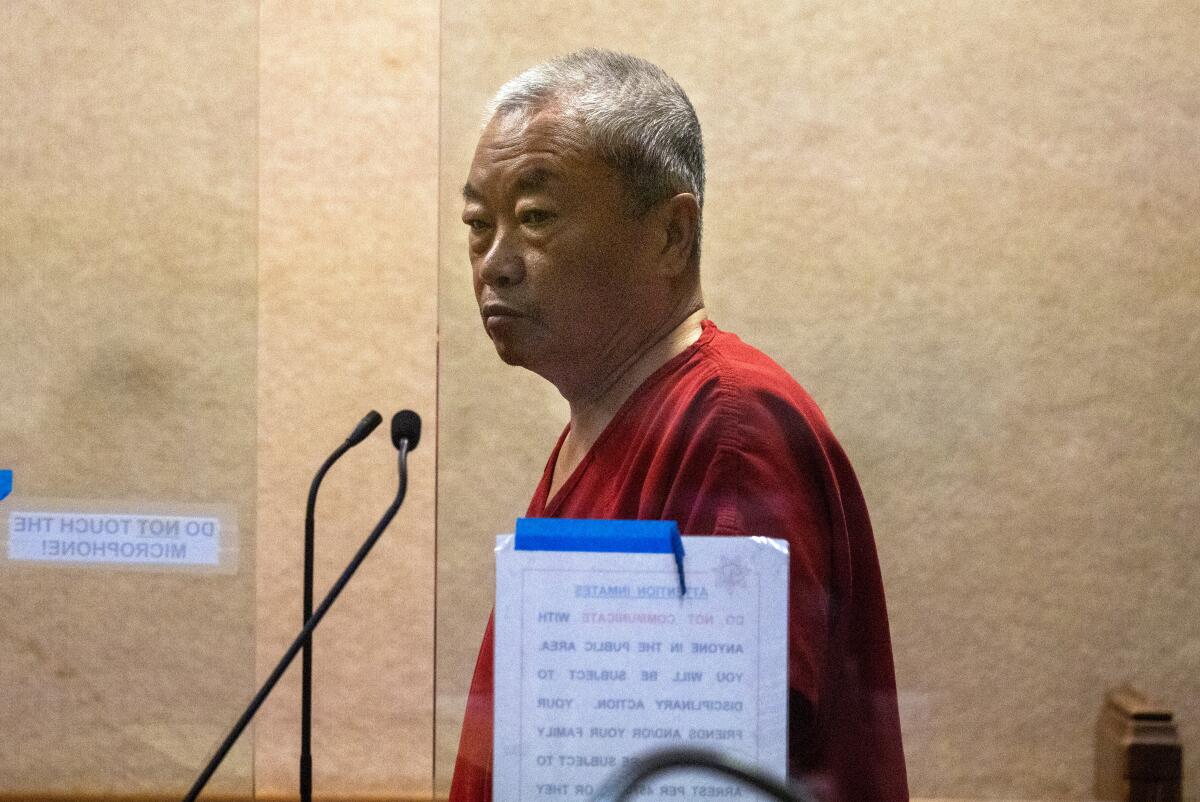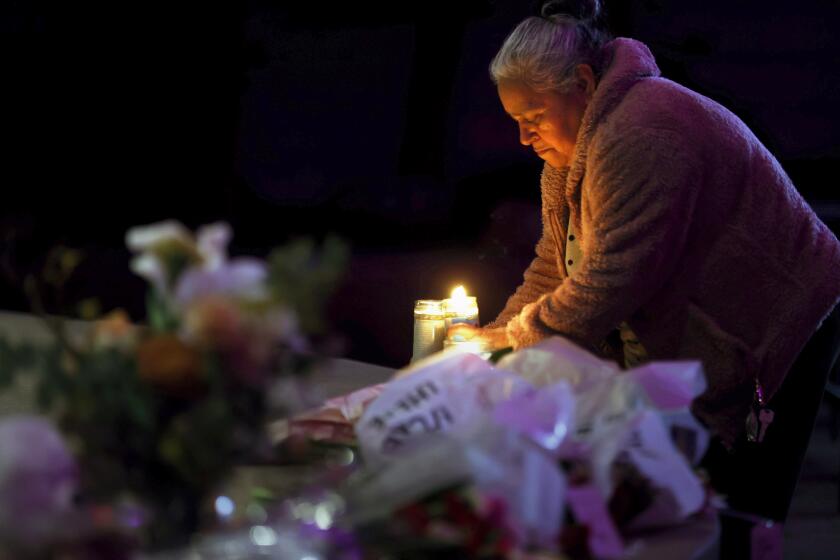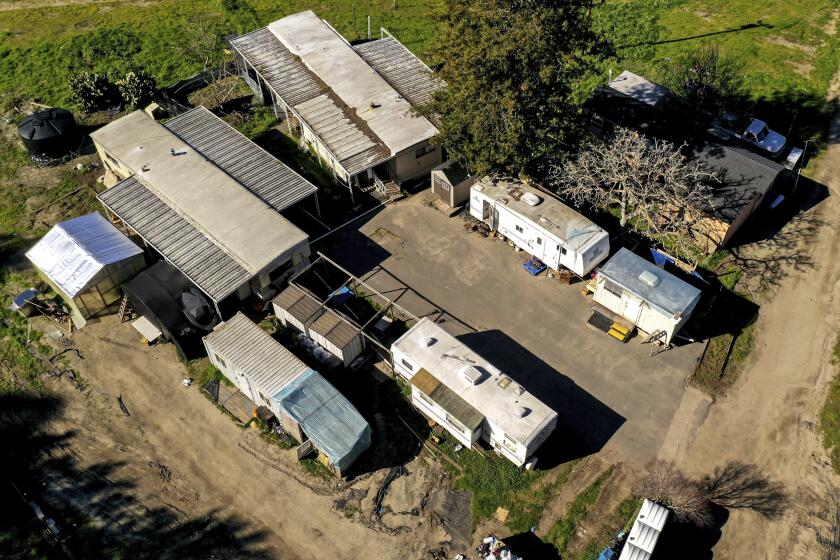‘The final straw’: Dispute over $100 repair bill may have sparked Half Moon Bay shootings

- Share via
The suspected gunman accused of killing seven people last week at two farms in Half Moon Bay told investigators a dispute with his supervisor over a bill for machinery repair sparked the massacre, authorities said.
The suspect, whom authorities identified as Chunli Zhao, 66, told law enforcement he became angry after being told by his supervisor at California Terra Garden, the site of the first attack, that he had to pay $100 to service a forklift that was damaged in a crash with a bulldozer, which was reported in local news outlets and confirmed by San Mateo County Dist. Atty. Steve Wagstaffe.
Zhao told law enforcement he became agitated trying to explain the crash was not his fault. He told police he then killed the supervisor and a colleague, authorities said.
“This was the final straw,” Wagstaffe told The Times.
Chunli Zhao told NBC Bay Area he carried out the two shootings that left seven of his co-workers dead, and claimed that he suffered years of bullying.
The other victims were not involved in the dispute over the crash, but Wagstaffe said the suspect told investigators he went about targeting people with whom he had had other problems in the past.
After the first two people were shot, Wagstaffe said, Zhao went about to “settle all [his] grievances.”
The dispute was first reported by NBC Bay Area.
Zhao was arrested last week after two shooting incidents in which seven workers were killed and another was injured at California Terra Garden and at Concord Farm, the site of the second attack, where the suspect had also worked.
In an interview last week, San Mateo County Sheriff Christina Corpus told The Times that Zhao “snapped” and “targeted” the victims.
Marciano Jimenez Martinez was also “a good son, brother, uncle and a great friend.” He and six others killed in the Half Moon Bay shootings are recalled by loved ones.
Zhao admitted to the killings in a jailhouse interview with KNTV-TV and expressed regret, said reporter Janelle Wang, who spoke with the suspect in Mandarin at the San Mateo County jail in Redwood City.
Wang said Zhao described being bullied at work. According to Wang, the suspect also said that he was suffering from “some sort of mental illness” and that he was “not in his right mind” at the time of the shooting.
Wagstaffe told The Times that the suspect’s comments to the TV station were “consistent with what he told law enforcement.” Wagstaffe declined to provide further details.
The shooting has also focused attention on the substandard workplace conditions endured by agricultural workers, many of whom are undocumented and unaware of their rights.
State officials said last week they had opened investigations into labor and workplace practices at the two sites of the Jan. 23 shootings, and local leaders have said they’re trying to work with the farms to improve housing.
The mass shooting in Half Moon Bay has brought the spotlight on a community known to many as a sleepy beach town. But its backbone is agriculture.
On Monday, California Terra Garden announced it would be constructing permanent housing for its workers, a decision the company said it made after it “uncovered a series of code and permitting requirements unknown before the tragic shooting.”
The announcement also comes after the San Francisco Chronicle reported that neither of the two farms had the necessary requirements to house workers there.
The company had originally planned to make repairs to the workers’ homes, a mix of trailers and mobile units set up on the farm, but shifted its plan toward new residences after local officials inspected the property, said David Oates, a crisis public relations expert hired by California Terra Garden.
In a previous interview, Oates told The Times that workers lived in “mobile trailer homes that are permitted and inspected by the county.”
On Monday, he said he meant to say the units had been permitted by the Department of Motor Vehicles, and said he had sent a text message clarifying the statement. No such message was received by a reporter.
The homes should be completed in a year, he said.
More to Read
Sign up for Essential California
The most important California stories and recommendations in your inbox every morning.
You may occasionally receive promotional content from the Los Angeles Times.















